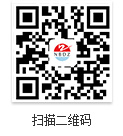The 2019 Internet Yuelu Summit opened in Changsha, Hunan, with the theme focusing on “Intelligent Networking and Yusi for Sheng”. For textiles in the traditional industry, with the advancement of smart technology, more AI technology will be applied to the production management of textiles.
From manual bookkeeping to information management, the textile industry has actually undergone a long process of acceptance. More than 90% of the entities in the industry are individuals or small and medium-sized businesses, and the overall acceptance of new things in the textile industry is actually not high. In particular, ERP, an auxiliary tool that requires time and cost to learn, often makes the industry feel unnecessary. However, when artificial intelligence technology is integrated into the textile management system, many processes can be better solved by machines. It can be said that the time cost of the textile practitioners is really reduced, thereby greatly improving the applicability.
In addition to management systems, smart production is also of interest to many textile companies. From the early automatic production line, to the now inspection, counting, rolling and other links can provide AI technology to achieve the entire process of unmanned, artificial intelligence has brought more surprises to the industry.
After the management and production channels have been facilitated, smart warehousing has actually been put on the agenda. Following the warehousing mode of retail enterprises, the textile industry can also make the entire storage link more efficient and the labor cost is greatly reduced by introducing intelligent inspection robots and fully automatic shelves.
Although AI technology has not been widely used in the entire textile industry, the future scenes drawn by artificial intelligence for the textile industry have really made many textile people feel excited. At present, many technologies have matured into the market, and textile manufacturers can also learn more about AI technology according to their own needs, so that technology can inject more fresh blood into the textile industry.
Ningbo Volkswagen Chemical Fiber Industry Co., Ltd. has an annual output of 68-1800D PP yarns, PP POY yarns, polypropylene plain yarns, PP FDY yarns 15,000 tons, 1.5D-13D polyester staple fibers of various specifications 25,000 tons, welcome new and old friends to visit Patrons!


 Mr. Chen Fei (Mr.)
Mr. Chen Fei (Mr.) 86-574-63550733
86-574-63550733 86-574-63551022
86-574-63551022 dz@dzfibre.cn
dz@dzfibre.cn



